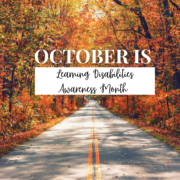Parent-Teacher Conferences: Advice from the Teacher for First-Timers
Parent-Teacher Conferences: Advice from the Teacher for First-Timers
Communication is Key
The start of a new school year brings many new experiences, not only for children, but for parents as well. For some of you, the parent-teacher conference may be one of these new experiences. According to the National Education Association, “research has shown that parental involvement is the most important factor in a student’s success in school.” Now, while the term “conference” may have an intimidating connotation attached, it is important for parents to understand the positive outcomes of parents and teachers communicating closely about a child’s educational development.
Parents’ and Teachers’ Goals Should Align
The old adage “it takes a village” certainly applies here. While parents or guardians undoubtedly know their children best, teachers’ observations are uniquely valuable as well. Consider the time we teachers spend with our students–we know their peer groups, their interests, their quirks, strengths and weaknesses, etc. That said, the parent-teacher conference allows both parties to get a glimpse inside the student’s habits in and out of school. It is often that both parents and teachers leave a meeting with new information about the child. Whatever the circumstances may be, the most important thing to remember at a parent-teacher conference is that everyone seated at the table is there for one reason–the child. Regardless of the reason for the conference, every person present has the child’s best interest in mind.
Prepare Specific Questions
In preparation for the conference, it is beneficial that parents come prepared with specific questions for the teacher(s). Teachers will also have prepared questions and conferred with colleagues about the child’s academics beforehand. In fact, before your parent-teacher conference, it is possible that there were one or two prior conferences about the child with teachers, counselors, and administrators.
When preparing questions, it is best to keep the focus on the child. Ask about how your child has been progressing or regressing on assessments. Ask to see upcoming assignments or projects. Ask about possible after-school opportunities for help with specific classes. Teachers will ask questions as well. We may want to know if your child has worked with a tutor in the past. We may ask about your child’s specific homework routine, or study habits. It may help us to know if your child typically shies away from asking for help. We may also ask about after-school or weekend activities that require a large amount of time and energy from the child. All of these questions simply paint a better picture about how your child approaches school work and education.
Leave With an Action Plan in Place
The worst outcome of a parent-teacher conference is that you leave the meeting asking yourself, “What was the point of that?” Of course, a teacher’s time is limited during the school day, but even a mid-day conference should bring about some sort of solutions and strategies for the student moving forward. At the close of the conference, both the teacher(s) and parent(s) should have established clear expectations regarding the child’s behavior, effort, assignment completion, etc.
It may also be beneficial to ask what your role as the parent should be moving forward. Depending on your child’s age, it may be appropriate to loosen the reins and place more responsibility on your child. After all, autonomy and self-advocacy are two skills that children must inevitably learn on their own.






